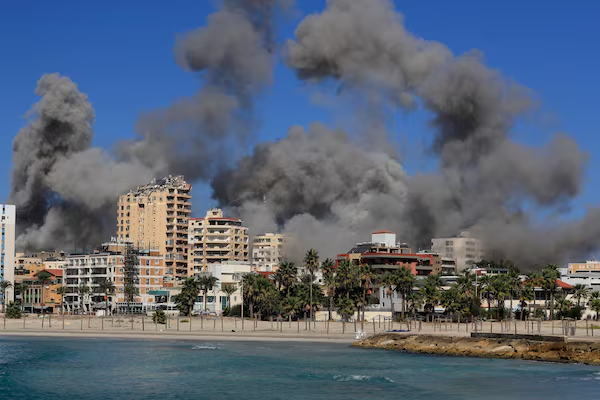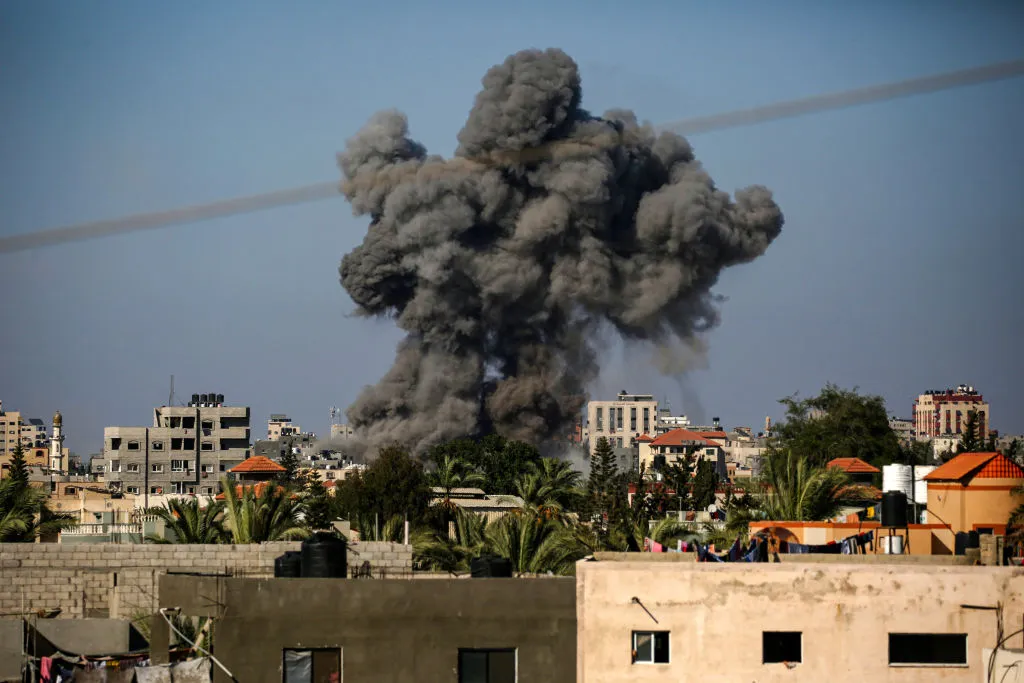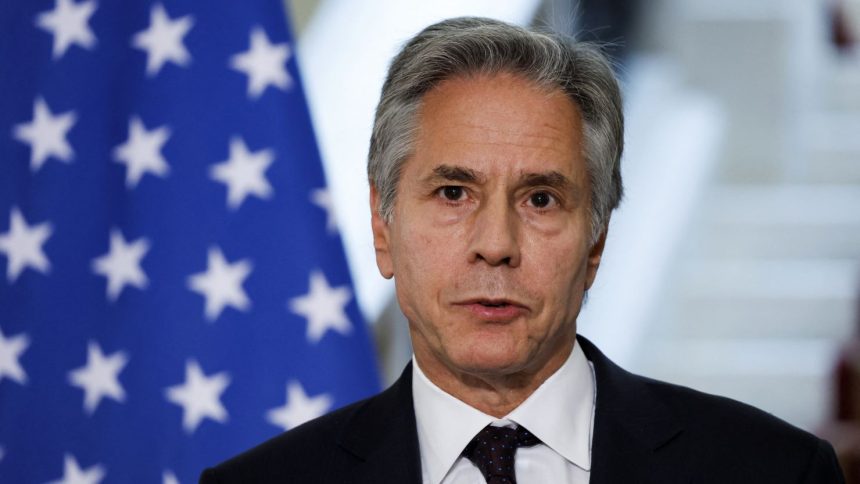U.S. Secretary of State Antony Blinken renewed his calls for a ceasefire between Israel and the militant groups Hamas and Hezbollah on Wednesday, amid escalating violence in the region. Blinken’s plea for a halt in fighting came as Israel launched a heavy airstrike on Tyre, a UNESCO-listed port city in Lebanon, signaling that a break in hostilities is not imminent.
Tyre, a city known for its historical and cultural significance, saw its skyline darkened by thick clouds of smoke after Israeli airstrikes targeted central areas, Reuters.
The bombing began just three hours after Israeli authorities issued an online warning, urging residents to evacuate parts of the city. Israel’s assault on Tyre marks a significant escalation in its efforts to dismantle Hezbollah, the powerful Iran-backed militant group that operates in southern Lebanon. Tens of thousands of Tyre’s residents had already fled in recent weeks as fighting intensified.
The port of Tyre, typically a bustling hub with fishermen, tourists, and U.N. peacekeepers, has become increasingly deserted as the conflict has engulfed the city. The Israeli evacuation orders encompassed large areas, even extending to Tyre’s ancient castle, an iconic symbol of the city’s rich history. The city, with its vibrant cultural life and historical landmarks, now lies in the crosshairs of an intensifying conflict that threatens its very existence.
Since the war broke out between Israel and Hamas, Blinken has made frequent trips to the Middle East in an attempt to facilitate peace negotiations. His latest visit comes after Israel claimed a key victory last week, killing the leader of Hamas, a move that Washington hopes could serve as a turning point in peace talks. However, Blinken’s efforts for a ceasefire face major obstacles, as both sides show little willingness to de-escalate.

In a press briefing, Blinken stressed that Israel’s military gains should now be turned into an “enduring strategic success,” urging Israeli leaders to capitalize on their advances. He emphasized that the focus should shift towards securing the release of hostages held by Hamas and ending the war.
Despite Blinken’s calls, the conflict in Lebanon shows no signs of abating. The Israeli military confirmed that it had killed three senior Hezbollah commanders and about 70 fighters in southern Lebanon over the past two days.
READ ALSO: Gold Prices Reach Record Highs Amid Pre-Election Market Volatility and Dollar Strength
Just a day prior, Israel also confirmed the killing of Hashem Safieddine, a key Hezbollah figure and the likely successor to the group’s current leader. Safieddine’s death marks a significant blow to Hezbollah, but it has also escalated the violence, drawing more intense retaliatory attacks.
Blinken met with Israeli Prime Minister Benjamin Netanyahu in his latest effort to broker peace and reiterated the importance of preventing further escalation. “Now is the time to turn those successes into an enduring strategic success,” Blinken said before departing for Saudi Arabia, another crucial stop in his regional diplomacy tour. Blinken emphasized the need for a clear post-war plan to ensure the conflict does not spiral out of control.
The Secretary of State acknowledged that new approaches are being explored to secure the release of hostages held in Gaza and to find a path towards ending the war.
However, the situation remains dire, with Hamas declaring that it will not release hostages until Israel agrees to end its military campaign in Gaza. On the other hand, Israel remains firm in its stance, refusing to stop its offensive until Hamas is fully neutralized in Gaza and Hezbollah is no longer a threat in Lebanon.
The complexities of the conflict have made peace negotiations difficult. While Washington continues to push for diplomatic solutions, the entrenched positions on both sides indicate that a peaceful resolution may still be far off. Hezbollah and Hamas, both close allies of Iran, are key players in the regional tensions, and their military capabilities and alliances pose significant challenges to achieving lasting peace.

Israel’s ongoing military campaigns in both Gaza and Lebanon are aimed at dismantling these groups, but the toll on civilians and the destruction of key cities like Tyre underscore the deep human and cultural costs of the conflict.
As fighting rages on, the international community watches anxiously, with hopes that diplomatic efforts, led by figures like Blinken, can bring an end to the violence before it spirals further out of control.
With the situation in the Middle East growing more volatile by the day, the path to peace remains fraught with obstacles. For now, Blinken’s calls for de-escalation face the harsh reality of continued airstrikes, evacuations, and entrenched military objectives on both sides.

